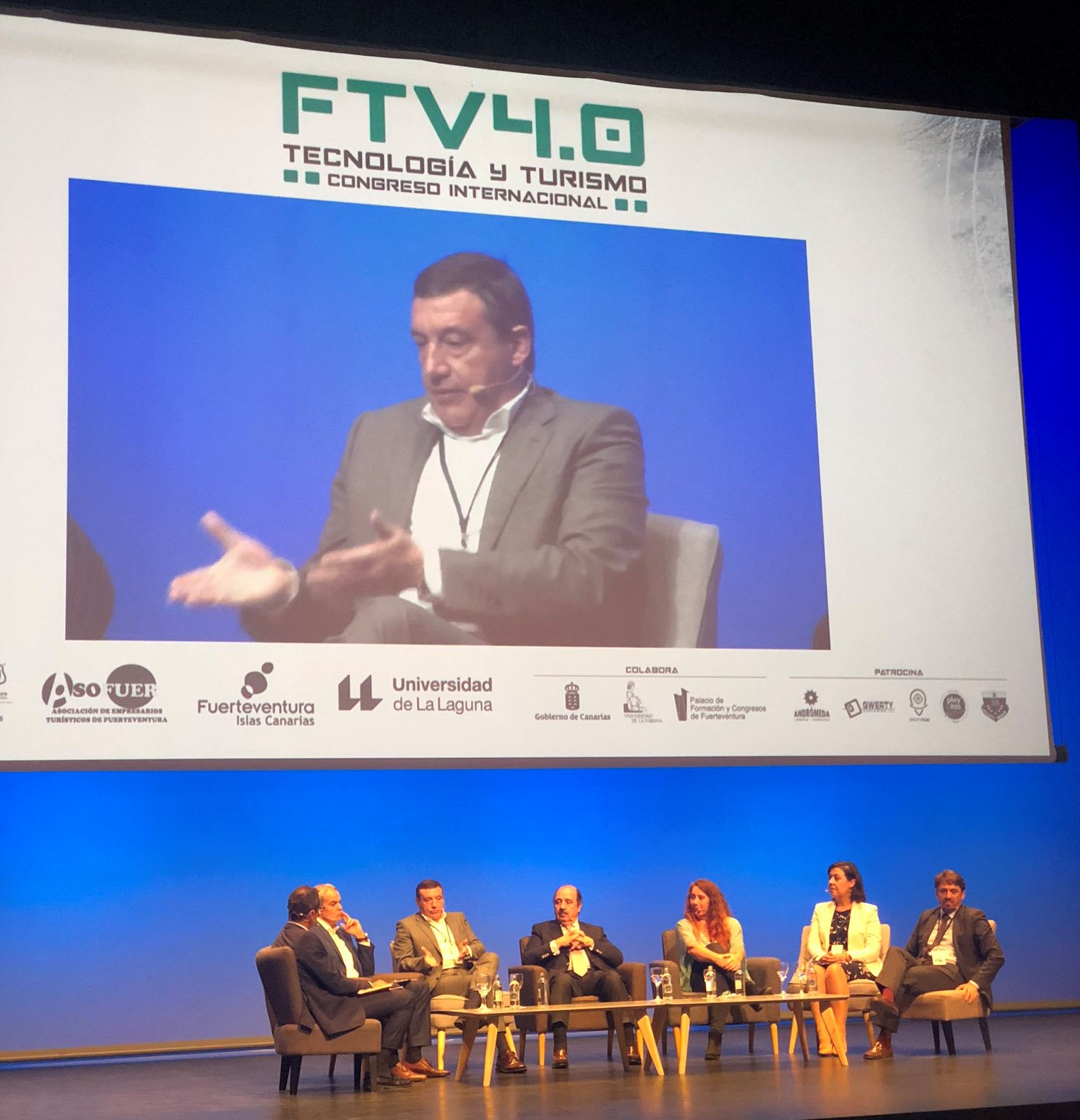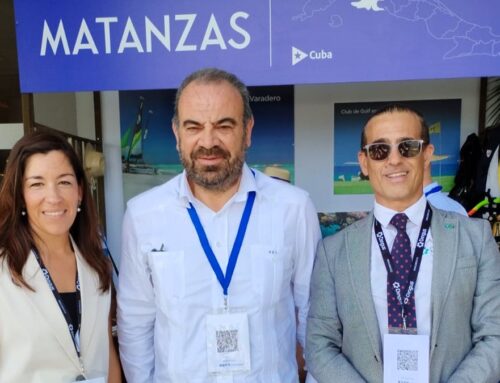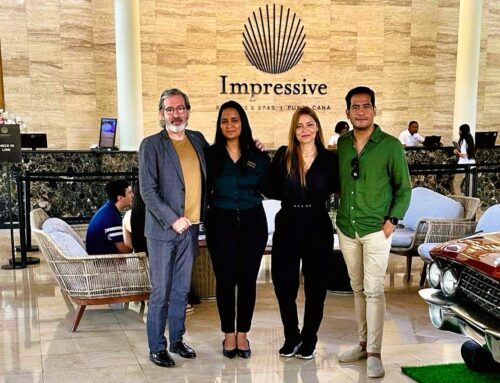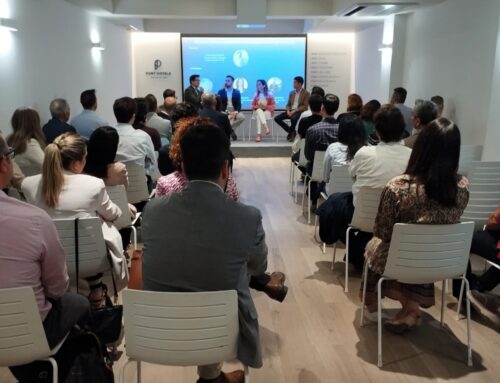Fuerteventura has just held the fourth edition of its International Congress of Technology and Tourism 4.0, in which about thirty experts have analyzed and debated the role of new technologies in the tourism sector from the concept ‘Creating Sustainability’. Among them was the CEO of Dingus and Hitt Group, as president of Turistec, the International Cluster of Information and Communication Technologies applied to Tourism based in the Balearic Islands, to which our companies are associated. Jaume Monserrat participated in the round table dedicated to ‘Strategies for sustainable tourism in Fuerteventura’, as an island territory with outstanding environmental concerns.
Monserrat referred to the UNWTO definition of Sustainable Tourism, according to which “it is the one that takes full account of current and future impacts to meet the needs of visitors, industry, the environment and host communities”. In this sense, he explained that Turistec bets on three aspects to promote the sustainability of tourism. One of them would be the economic, where this activity “must be profitable and create stable employment. Beyond the certainty that half of the activities carried out by workers have potential for automation, it is also true that technology will promote new jobs and opportunities”.
On the social side, Monserrat pointed out the need to “respect and promote the historical, cultural and any kind of rooted and emblematic heritage of the destinations“. With regard to the environment, he opted for “contributing to the conservation of ecosystems and biodiversity. In short, all this is a summarized version of the 17 Sustainable Development Goals (SDS) advocated by the United Nations. But it is up to us to take them off paper and make them a reality”.
In his speech he said that “technology is one of the keys to achieving sustainability in tourism. The way people travel has changed and, nowadays, we all have the world at our fingertips in one or a few clicks. This use of digital tools and applications -explained Monserrat– allows the impact of tourism to be much more atomized, with more varied models, and allows the traveller to reach less populated areas, generating income for people and groups that previously did not benefit from this activity. And all this with greater efficiency, in environmental terms”. However, the head of Turistec warns that this process of digitalization “is not easy for a sector that has not been particularly innovative, and is a challenge that is further complicated in Spain, where the main business network are SMEs that, in general, have lived accommodated in the good results”.
In the immediate future, Monserrat believes that “it will be important to achieve a real compromise between the public and private sectors, in order to establish strategic plans aligned with the policies (in our case) of the EU, and in this way compete with the disruptions that the economic systems will face. Above all, in view of the predictable new era with the emergence of all levels of Artificial Intelligence”. As a final note, a forecast by Accenture and Frontier Economics on the impact of digital development: with investment in this area by 2035, the growth factors in terms of annual GDP could be twice as much as would have been expected without it.











